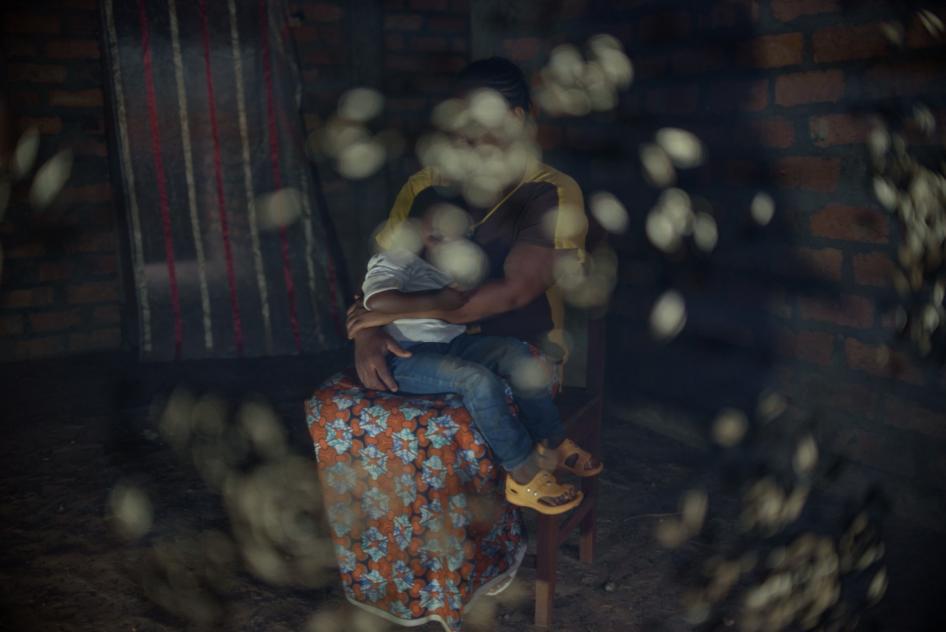By: Adam King
Impunity Rights News Reporter, Africa

DAKAR, Senegal — A recent report by Human Rights watch released on October 5, 2017 details the horrific ordeals of the plight of women in the Central African Republic. Women in the region have been subjected to repeated instances of rape and sexual slavery. The repeated violence is the result of a coup that took place in the country in 2013;
“Thousands have died and a fifth of Central Africans have been uprooted in a conflict that broke out after the mainly Muslim Seleka rebels ousted President Francois Bozize in early 2013, provoking a backlash from Christian anti-balaka militias.”
It’s clear, according to Human Rights researcher Hillary Margalois, that the violence against women is calculated and intentional;
“Armed groups are using rape in a brutal, calculated way to punish and terrorize women and girls…Every day, survivors live with the devastating aftermath of rape, and the knowledg[e] that their attackers are walking free, perhaps holding positions of power, and to date facing no consequences whatsoever.”
This targeting has a directly negative effect on the women involved. Women may not feel as if they have effective recourses against the treatment, which may lead to underreporting of the violations against them, “Due to stigma, under-reporting by survivors, and security-related restrictions on research, the full number of sexual violence incidents by armed groups during the conflict is undoubtedly higher.”
The stigma discussed is not just that of being the victim of rape or sexual exploitation. There are also cultural factors at play that can affect women twice over, social and familial. A woman can be forced to bear shame from the violence against her and be ridiculed by family and community members;
“Stigma and rejection also present significant barriers to women and girls disclosing rape or seeking help. Survivors said their husbands or partners abandoned them, family members blamed them, and community members taunted them publicly after rape…Only 11 of the 296 survivors interviewed said they had tried to initiate a criminal investigation. Those who had informed authorities faced mistreatment including victim-blaming, failure to investigate, and even demands to present their attackers for arrest. Three survivors said that their relatives had been killed, beaten, or threatened with death when they confronted members of an armed group responsible for their rapes.”
The stigma attached to the violence, coupled with shame and ridicule, leave these women with little options to pursue justice. The threat alone of repeated physical violence or even death is enough to deter women from seeking out help. As a result, many of the aftereffects resulting from the violence and rape leave permanent afflictions;
“Women and girls often said they suffered incapacitating physical injury and illness, including HIV, because of rape, as well as suicidal thoughts and loss of livelihoods or access to education. Most had not received post-rape medical or mental health care – including medication to prevent HIV and unwanted pregnancy – due to a lack of medical facilities, the cost of services or transport to facilities, and misconceptions about available services.”
Violence against women in conflict zones is unfortunately a rather frequent occurrence in Africa. Women and children tend to be the most vulnerable and do not have the means to seek effective redress. The United Nations has spent considerable time and resources in identifying and trying to address the problem head-on. There have been regional initiatives that attempt to empower tribunals to conduct investigations into allegations of sexual violence and bring those responsible to justice. The Special Criminal Court (SCC) is backed by close to 20 non-governmental and international human rights organizations. The challenge, however, is to convince surviving victims that pursuing justice is a possibility and that it doesn’t result in further intimidation or violence from the perpetrators.
For more information, please see:
Reuters — ‘Rape, sexual slavery are weapons in Central African Republic war – report’ — 05 October 2017
Human Rights Watch — ‘Central African Republic: Sexual Violence as a Weapon of War’ — 05 October 2017
Human Rights Watch — ‘Central African Republic: Support the Special Criminal Court’ — 16 November 2016
Amnesty International — ‘Global campaign targets rape in conflict zones’ — 23 November 2012
United Nations — ‘Rape: Weapon of War’ — June 2008



